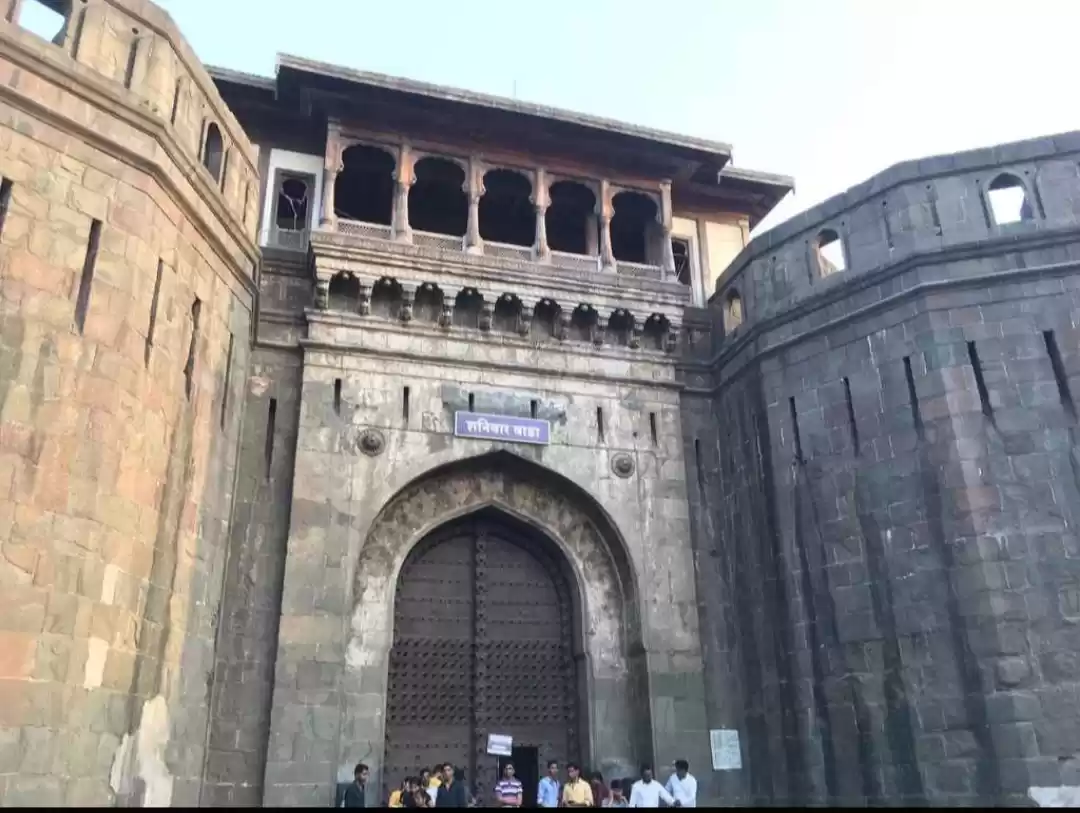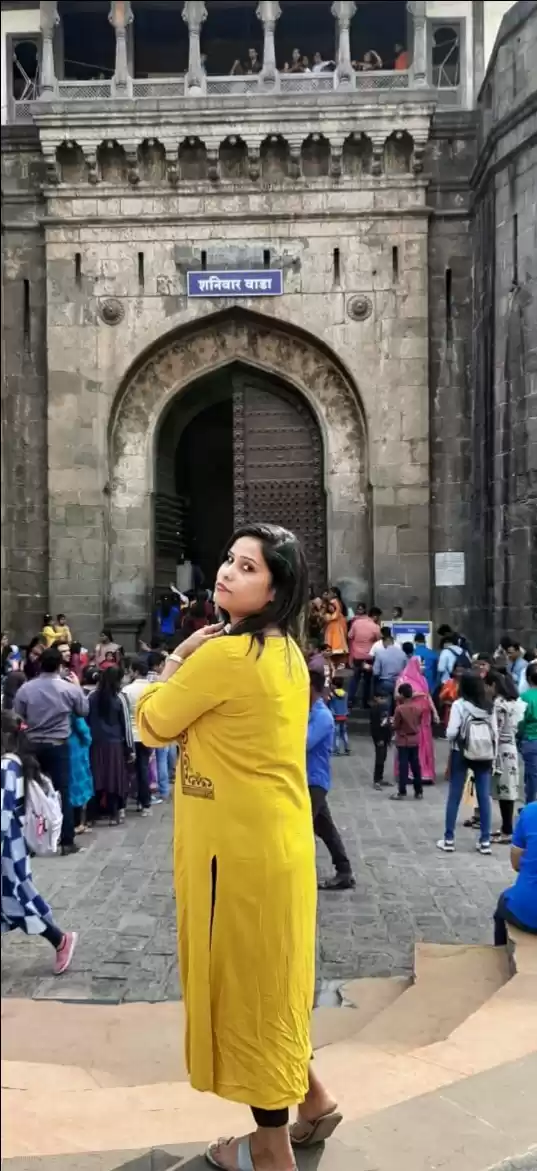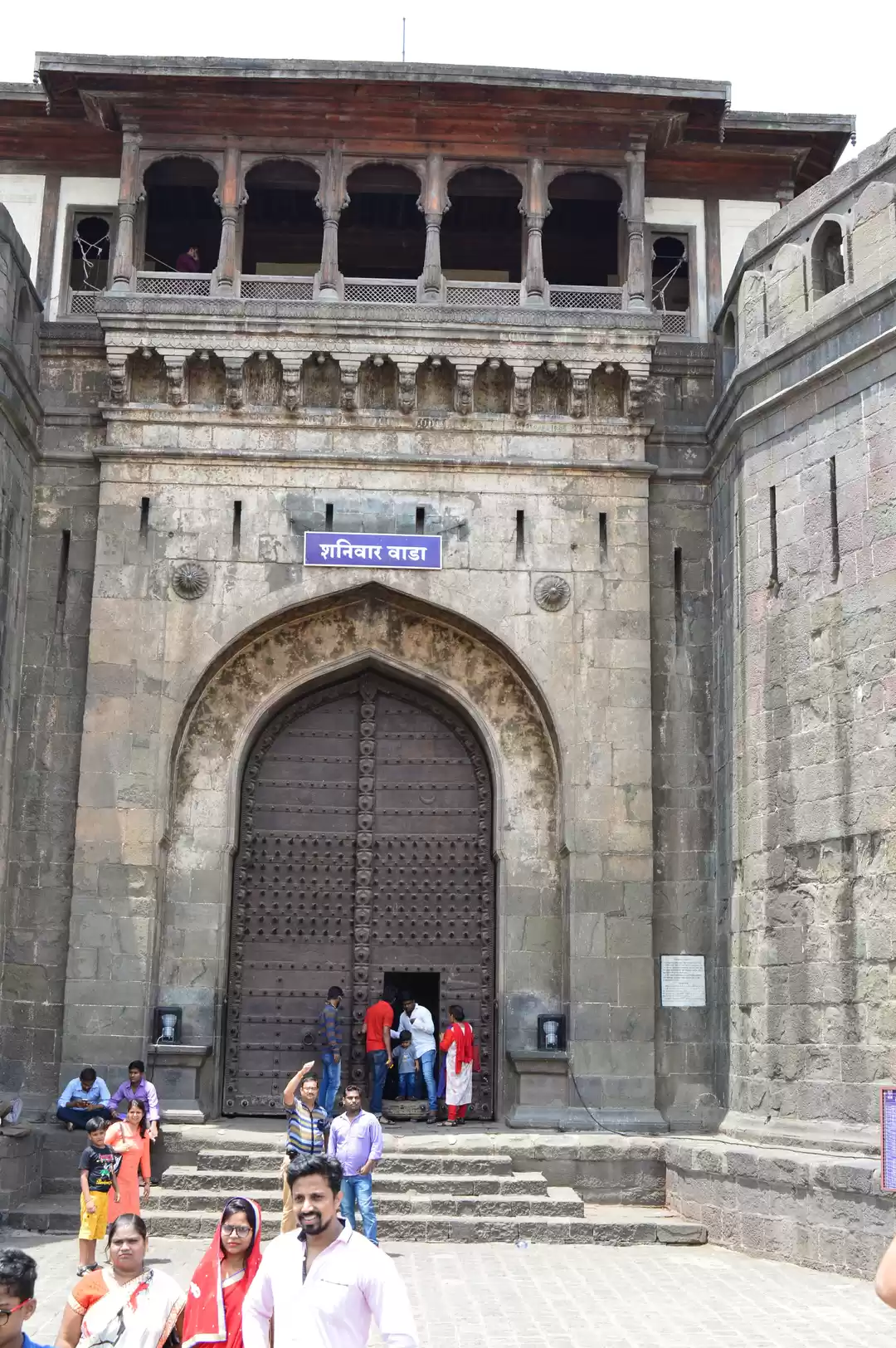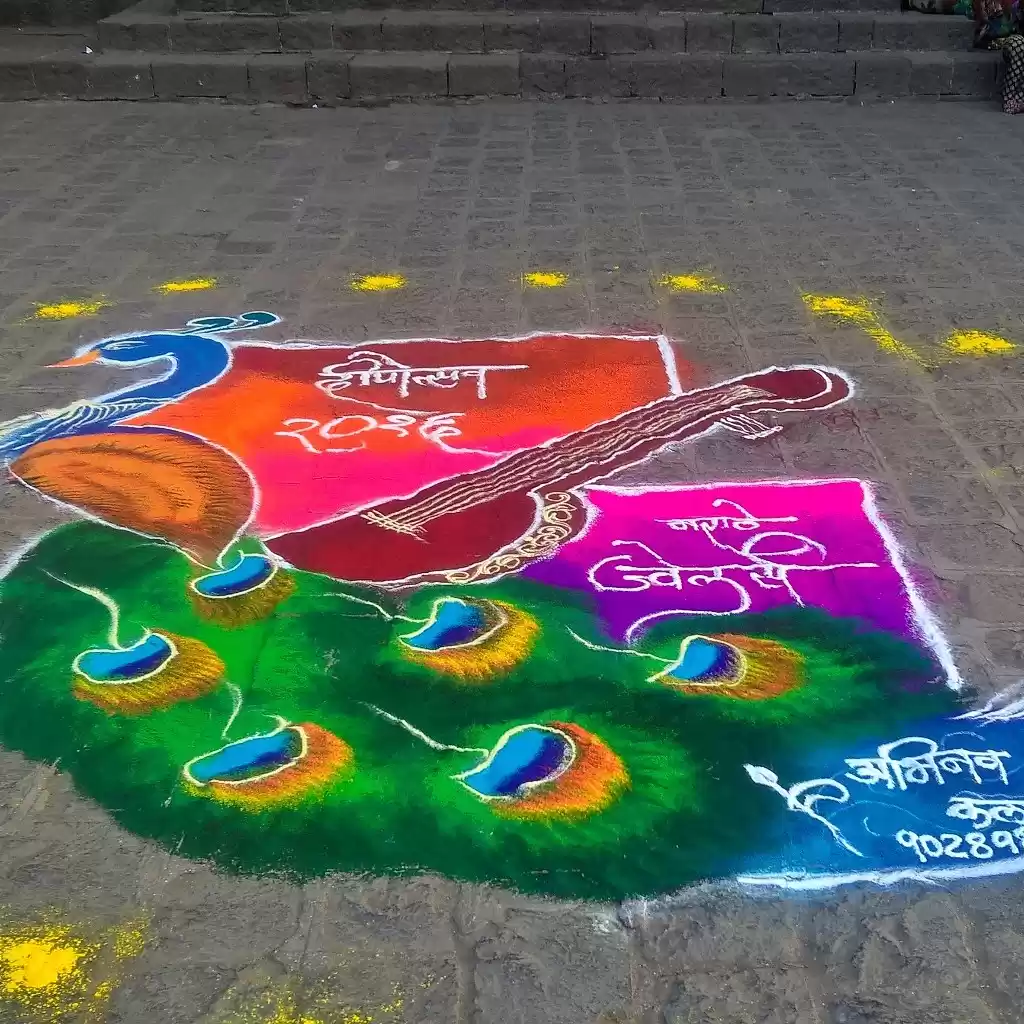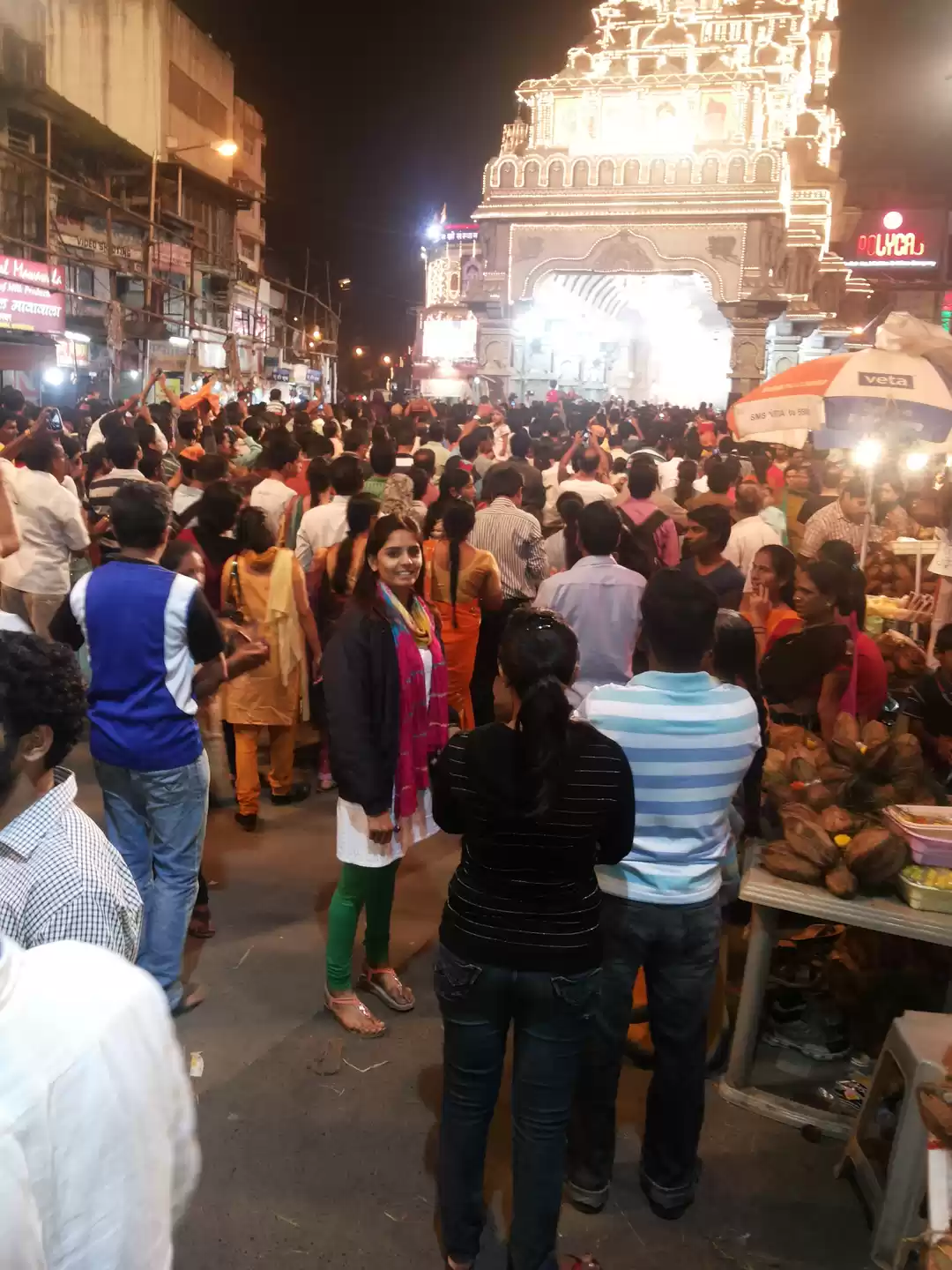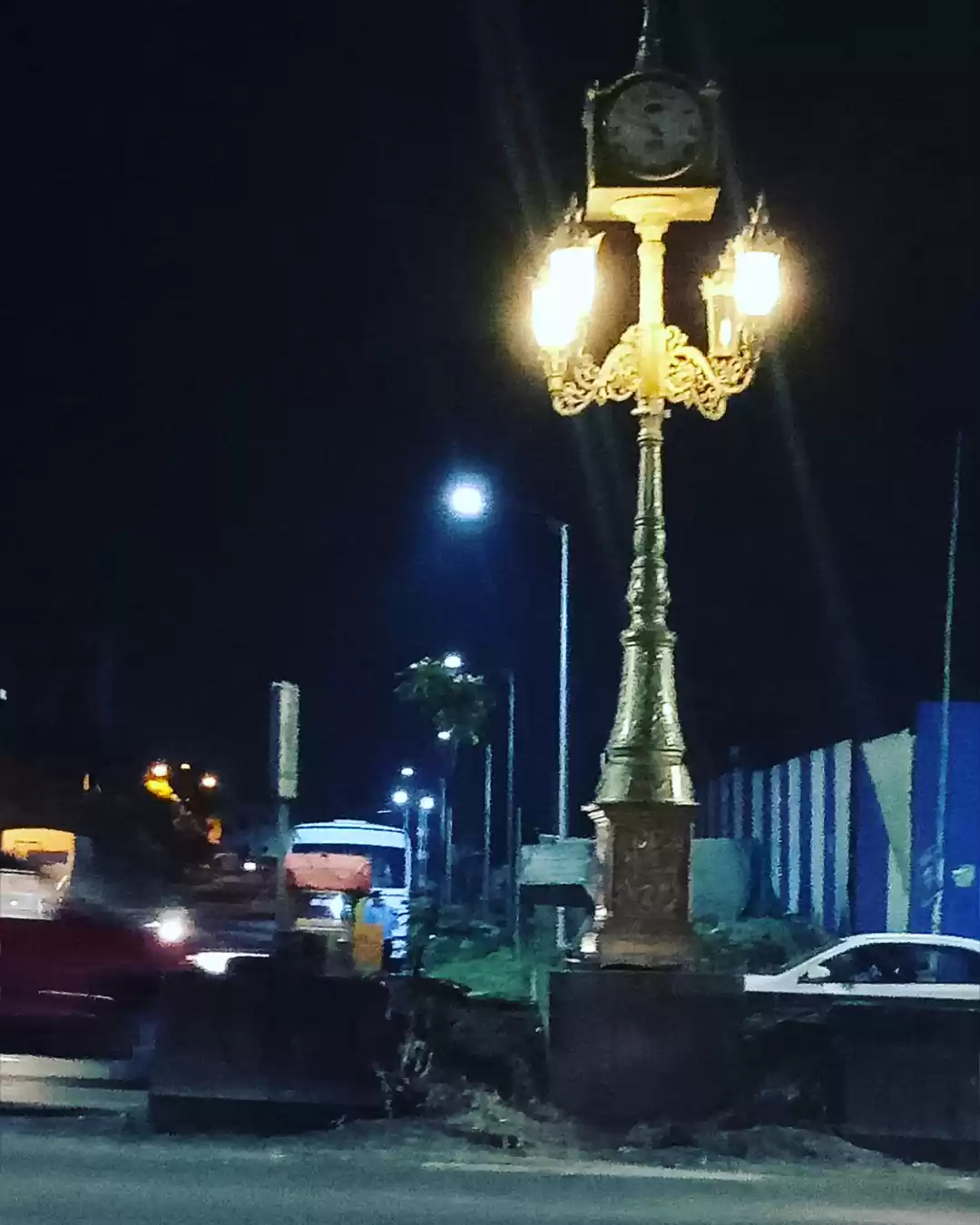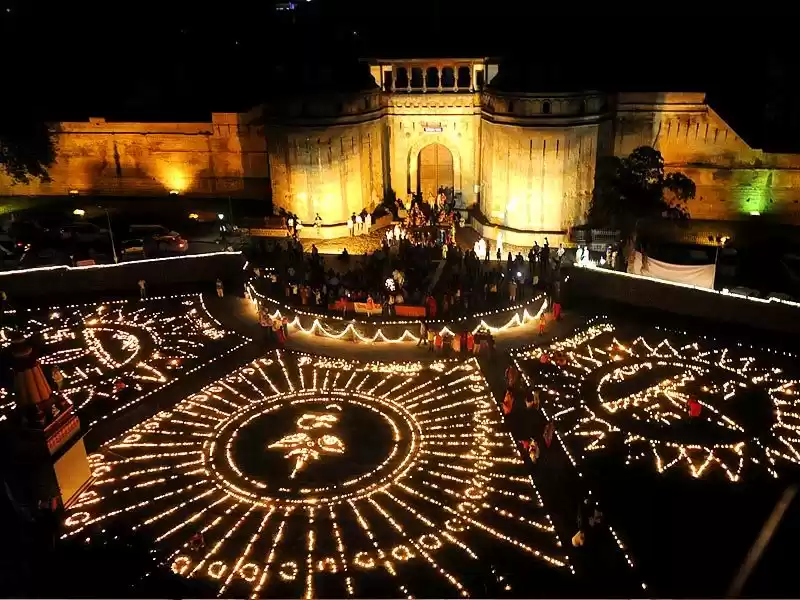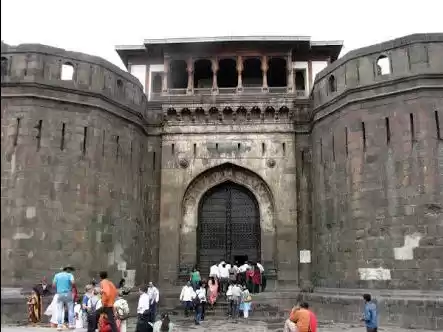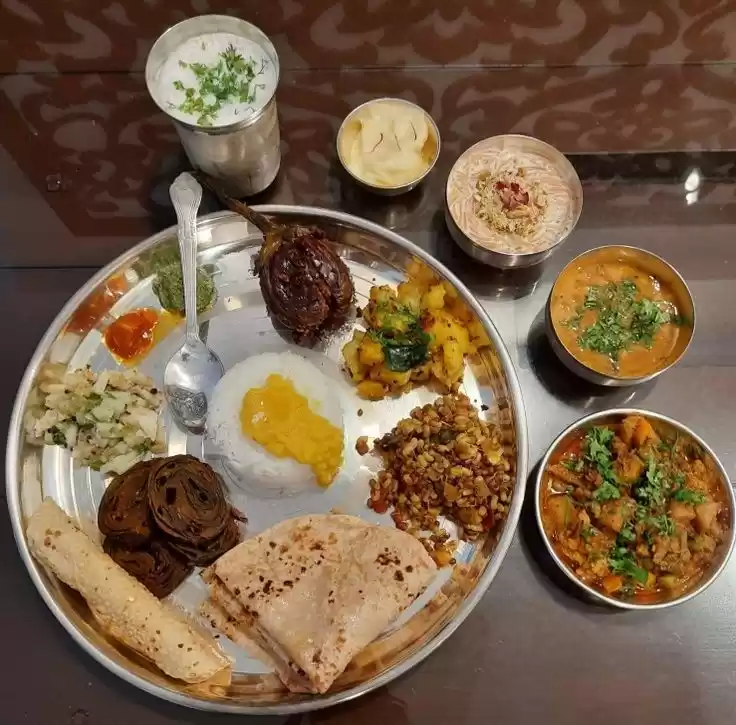
Pune...the land of the Peshwas (prime ministers) of the Maratha Empire, attained its high importance when it became the capital of Bhonsle Marathas in the 17th century. I am big fan of the marathi movie Mumbai Pune Mumbai, starring Mukta Burve and Swapnil Joshi. After watching that movie I was very curious to explore Pune at least once in my life time. So, finally my destiny gave me a chance to visit Pune, first time, with my dad, for one of my job interviews. And as per our Indian culture every auspiciuos thing starts with Dev darshan (prayer), so the very first thing we did after leaving our hotel is we went to Shreemant Dagadusheth Halwai Ganapati Temple is the epitome of pride and honor to the city of Pune which is dedicated to the Hindu God Ganesh.
Daily Temple Timing – 06:00 AM to 11:00 PM.
After getting over the interview, there was still enough time left, so we decided to visit few local places in Pune. We started from the historic place of Maratha Empire, The Erstwhile Seat of the Peshwas: Shaniwar Wada. The name Shaniwar Wada is derived from two Marathi words – Shaniwar meaning Saturday and Wada meaning a residential complex. Being an interior designer by profession, I am way too much interested in history: the architectures, the interiors and the stories behind them. Its seems to be more fascinating to me.
Shaniwar Wada Information:
Location Bajirao Road, Shaniwar Peth
Timings 8:00 am to 6:30 pm; every day
Entry Fee ₹ 25 for Indians; ₹ 125 for foreigners
Year of Construction 1732
Commissioned byPeshwa Baji Rao I (a general under Chhatrapati Shahu Maharaj of the Maratha Empire)


Shaniwarwada, once the seat of the Peshwa governance in Pune is a 287-year-old mansion in Maratha Imperial Architecture and is one of the finest examples of architecture in the city. The Peshwas were the Prime Ministers to the Maratha rulers. It was also the site where the romance between Peshwa Bajirao and Mastani Sahiba blossomed. It served as a melting pot of culture and politics until the Peshwas lost the Wada to the British in 1818.

In 1818, the British East India Company gained control over the Wada following their win in the Third Anglo-Maratha War. On 27th February 1828, the palace was engulfed by a huge unexplained fire, causing extensive damage to the whole structure. After the fire doused, only the massive granite ramparts, deep foundations, and a few teak gateways and erections remained of the grand mansion. The structures that survived this massive fire outbreak are currently maintained as a tourist site. All these historic informations are mentioned there in the Wada.
The Wada has five gates - Narayan, Ganesh, Window, Mastani and Dilli, out of which only the Dilli gate is operational and open to the public. Mastani Darwaja (Mastani's Gate) or Aliibahadur Darwaja, facing north was used by Bajirao I's wife Mastani while travelling out of the palace's perimeter wall. Khidki Darwaja (Window Gate), facing east is named for an armoured window it contains. Ganesh Darwaja (Ganesh Gate), facing south-east named for the Ganesh Rang Mahal, which used to stand near this door. It could be used by ladies at the fort to visit the nearby Kasba Ganapati temple.
The main gate of the palace is so big that elephants can easily pass through it. However, to prevent the enemies from using elephants to charge the gate, sharp steel spikes were attached to each pane of the gate at an approximate height of an adult elephant’s forehead.


Above the entrance of the Shaniwar Wada's Dilli Darwaaza there was a huge hall. The important buildings in the palace includes the Thorlya Rayancha Diwankhana (Marathi:The court reception hall of the eldest royal, meaning Baji Rao I), Naachacha Diwankhana (Dance Hall), and Juna Arsa Mahal (Old Mirror Hall).

Though Shaniwar Wada is a ruined structure now, it is still one of the best places to visit in Pune. Although the mansion covered nearly the whole city in its heyday, it currently spreads across 625 acres. The complex had an impressive lotus-shaped fountain: the Hazari Karanje (Fountain of a thousand jets). It was designed as a sixteen petal lotus; each petal had sixteen jets with an eighty-foot arch. It was the most complicated and intricate fountain of its time.

After having a mesmerizing and adorable experience of the architectures and heart throbbing stories of Shaniwar Wada, we headed to another thrilling adventure that is Tulsi baug, a prominent shopping area in the city. Its main features are a historic temple precinct and a large market, located in the heart of the city. It is roughly 3 km away from Swargate Station. The busy Tulshibaug market is located in front of the famous Vishrambaug Wada. Being a girl it was mandatory for me to visit this place, unlike other girls even I am a shopaholic. Disorderly, noisy and very crowded, this market place is lined with stalls and shops selling a wide range of goods including traditional Maharashtrian cooking items, apparels, cosmetics, jewelry and household goods, as well as Puja items. Other than shopping the market offers various refreshments and hotels.

Pune is a city with a plethora of tourist attractions, but I got a glimpse of its heritage and history even if we were here on a one-day trip. And I will be coming back for more soon !
Frequent Searches Leading To This Page:-
weekend trip cost from pune, weekend holiday trip from pune, weekend holiday tour from pune, weekend travel cost from pune, weekend trip from pune




